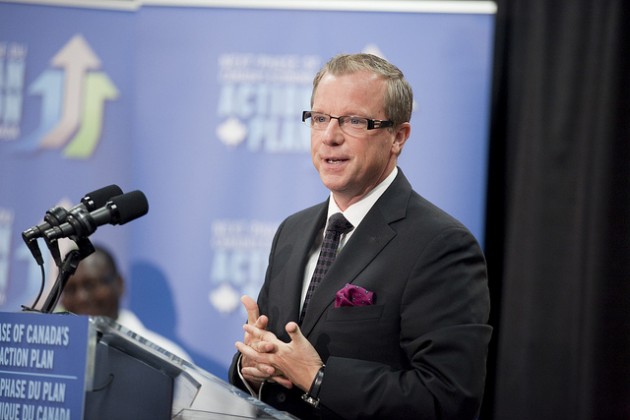
David Suzuki chides Sask. premier Wall on climate stance
by The Canadian Press

Suzuki says Canada cannot meet climate targets if pipelines, oilsands expansion, or expanding coal and rail terminals remains on the agenda

Premier Wall’s spokesperson says the assertion that Wall (pictured above) is a climate denier is absurd and Suzuki should know better. PHOTO: David Stobbe/University of Saskatchewan, via Flickr
David Suzuki was in Saskatoon on Sunday for a literary festival, and told a reporter from CKOM radio that he’s shocked Saskatchewan voters would elect a climate denier to play a role in leading the province.
Suzuki says the main reason he wanted to come to the city was to talk to the Saskatchewan people who elected Wall.
He says farmers know the climate is changing, and says Canada cannot meet the Paris climate accord target for limiting global temperature increases if pipelines, tarsands expansion, or expanding coal and rail terminals remains on the agenda.
Wall is on a trade mission to South Korea and China but his office says the assertion is absurd and Suzuki should know better.
Wall responded in an email that he denies “the fallacy that a new tax on Canadians, whose CO2 emissions are 1.6 per cent of global emissions, is the best way for Canada to help fight climate change.”
Suzuki also commented on a Husky oil spill that leaked up to 250,000 litres of oil mixed with a lighter hydrocarbon into the North Saskatchewan River river near Maidstone in July.
The Saskatchewan Water Security Agency said last week that cities affected by the spill could start using the water again after being forced shut off their intakes and find alternate water sources while the plume flowed downstream.
Suzuki said ranchers, farmers and First Nations people who live downstream will be affected for a long time.
This story was filed by Saskatoon radio station CKOM.